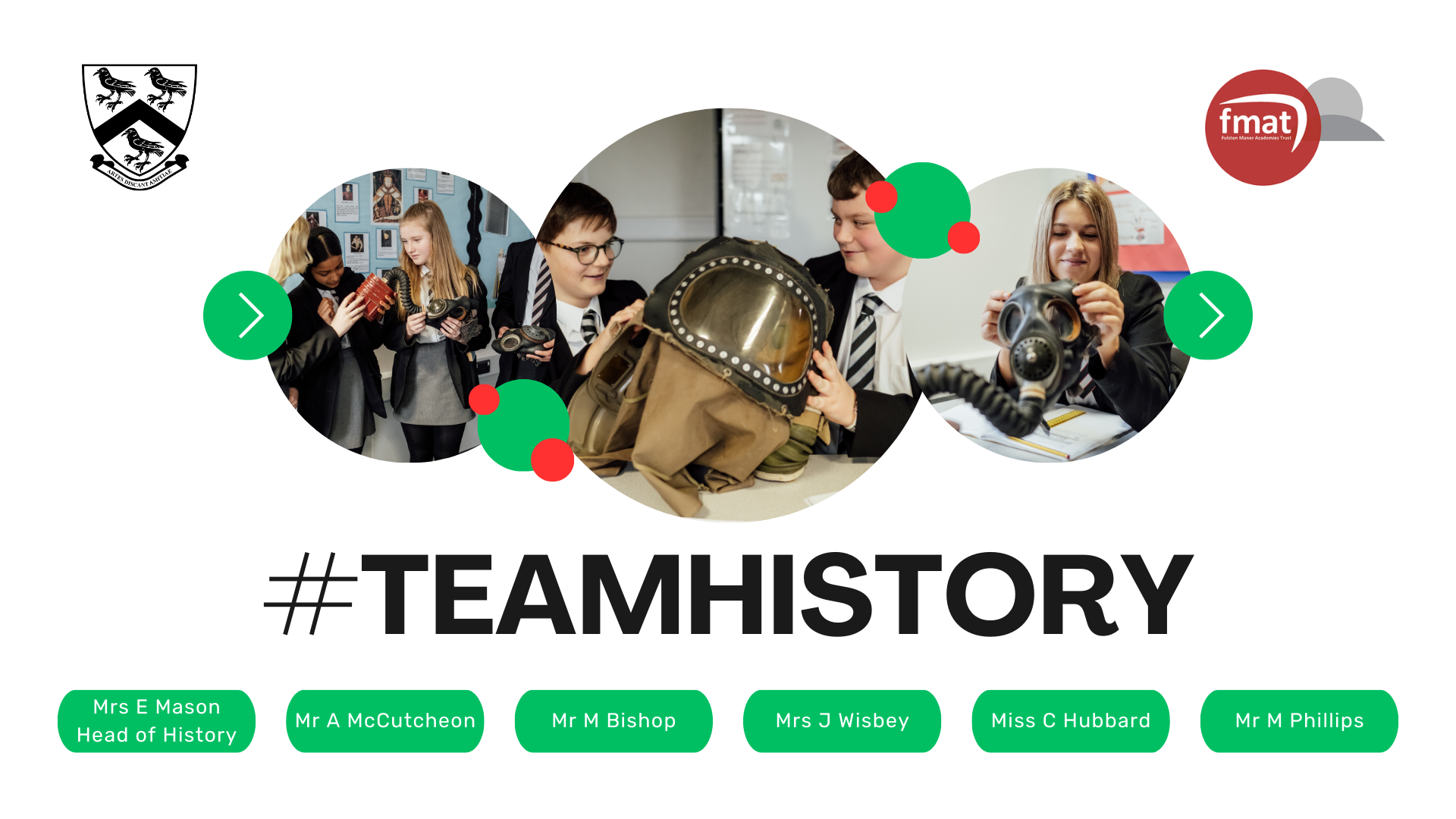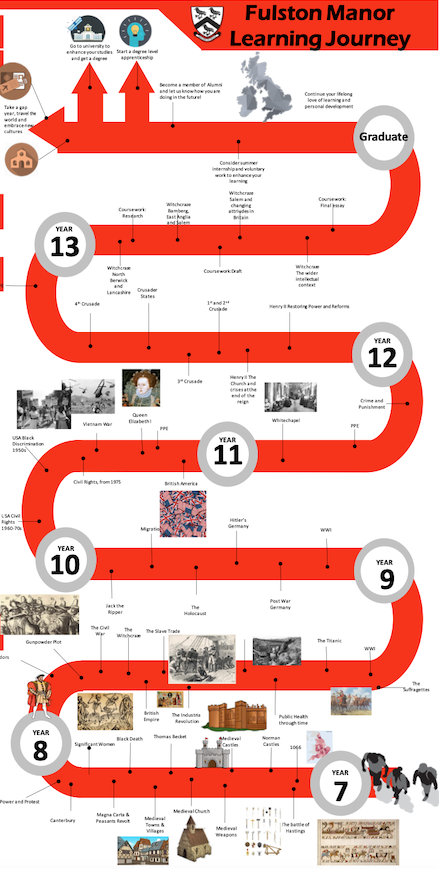History
 Curriculum Intent
Curriculum Intent
|
The History curriculum is designed primarily to build a thirst for History and a desire to investigate the past. This is created through the use of enquiry questions, which promote intrigue into the past. Our curriculum is ambitious, as we consistently ensure that students link the past, present, and future to see the impact that History has had and will continue to have. We instil British Values in our curriculum: Democracy, Rule of Law, Respect and Tolerance and Individual Liberty are woven throughout our curriculum, both focusing on British and worldwide examples. Students build their historical knowledge through knowledge themes. Knowledge is underpinned by the main themes of religion, power, and authority. These themes are woven throughout the key stages so that students can make links between them. Religion, power, and authority are the main themes, as these are also strongly linked with the other themes. This allows students to build on their knowledge learnt at key stage 2 in order to understand the formation of modern Britain and the wider world. |
|
Curriculum Impact
The aims and learning outcomes of our curriculum is to enable students to develop the ability to:
- Explain what has caused an event and its long and short-term impacts. Then, judge the most significant causes and impacts.
- Analyse and critically evaluate factors to reach substantiated, developed and sustained judgements.
- Judge how events have changed over time. Analysing sources to judge how similar or different they are.
- Compare and contrast individuals and topics over a long time period to reach substantiated, developed and sustained judgements.
- Explain and analyse who/what is significant in history due to their impact. Create criteria for what makes a significant person or event. Use sources to judge why they are useful.
- Use a range of criteria to critically evaluate the role and importance of key individuals and themes.
- Use key questions to be able to make judgements based on sources and own knowledge.
- Critically using evidence in investigating and assessing historical questions, problems and issues.
- Explain why historians may have different opinions and judge, using their historical knowledge and evidence, who they believe to be correct.
- Analyse and critically evaluate different interpretations and representations of the past through contemporary perspectives.
- Narrate accounts of historical events and make connections between them, explaining how events are significant at certain times.
- Analyse how much change and continuity there is between time periods and explain why this has occurred.
Accommodation and Resources
- 5 specialist History teaching rooms
- 24 iPads
- Many fascinating historical artefacts, including WW2 gas masks
Extra-Curricular Clubs and Opportunities
- A Year 7 trip to Canterbury linked to our local history study project.
- A trip to London is run at the end of Year 10/beginning of Year 11 to Whitechapel and the London Dungeons.
- Year 13 trip to the site of the Battle of Hastings and Canterbury during the course. These trips aid learning and student engagement in the course.


